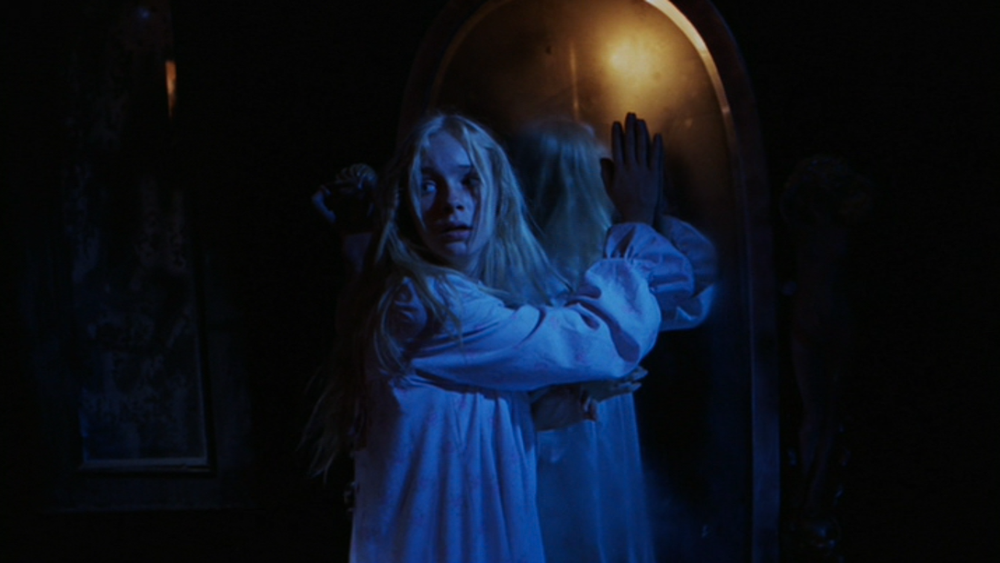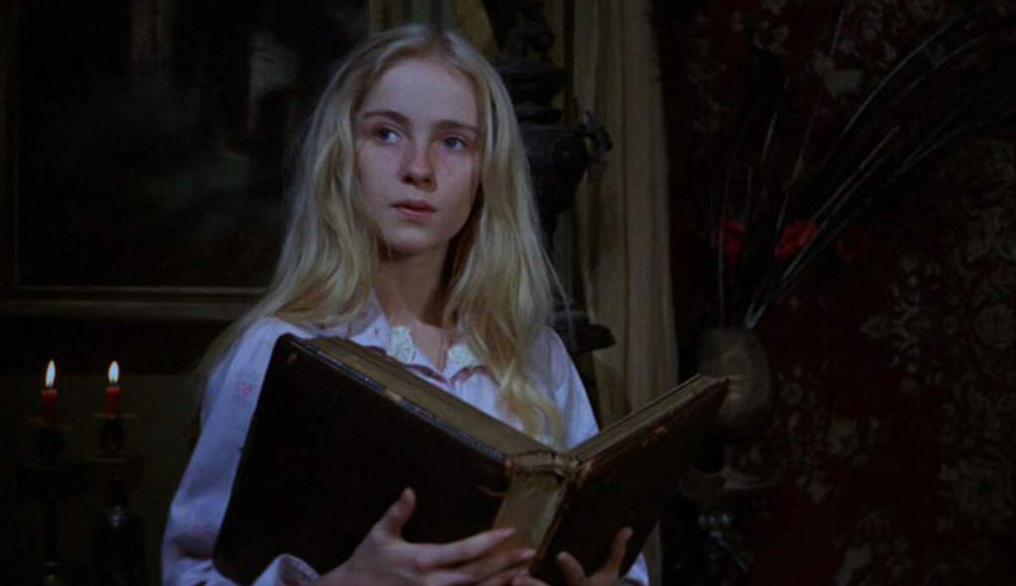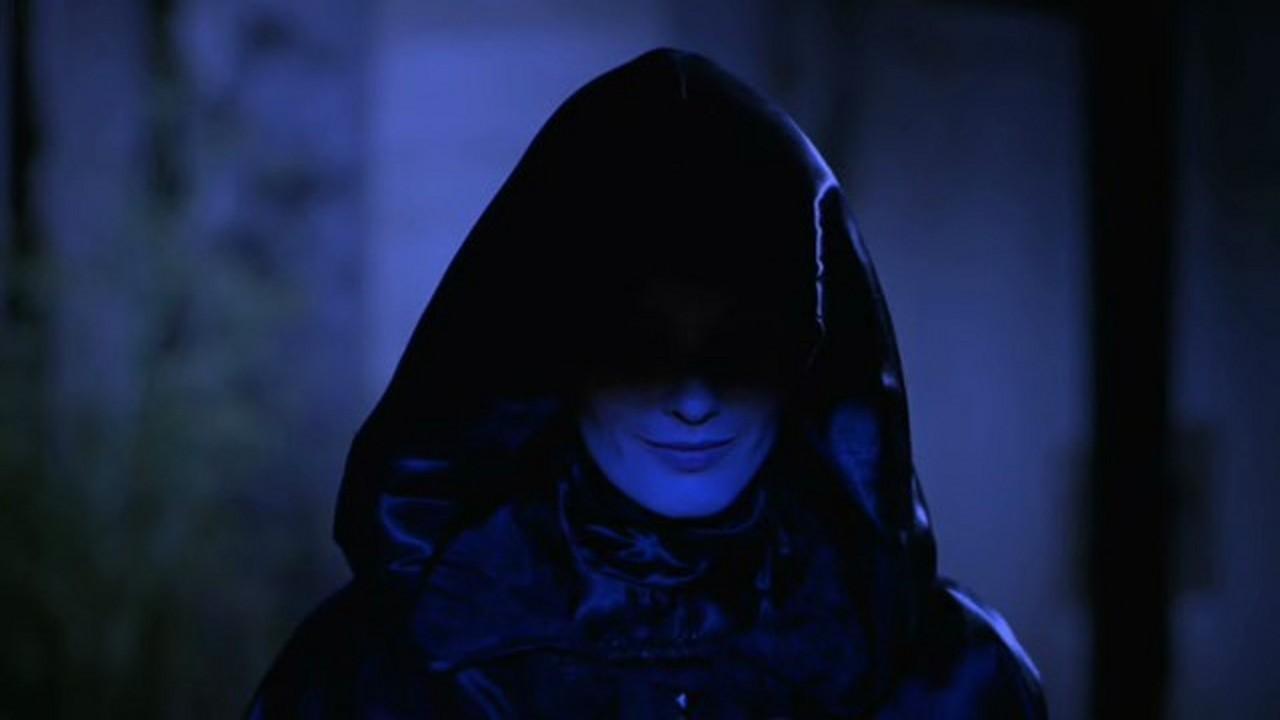Richard Blackburn’s 1973 film introduces a badass vampire queen to a girl coming of age in a quickly dissipating fantasy world
The socio-sexual capital of beautiful young women is precariously inflated. Inversely, the physical empowerment of girls is constantly encumbered. In the vulnerable years where reproductive systems are fully developed but the frontal lobe is not, a power tumbles into hands that tremble with hormone surges and childhood fears alike.
At every turn, young Lila Lee finds a world that would constrict, dominate, extort, manipulate this power. Our 13-year-old baptist princess finds herself both dangerous and in constant danger. A chilling experience shared by many children as they become women, Lila awakens to a world with strange new laws of nature.
This is where we begin Lemora: A Child’s Tale of the Supernatural.
A fun cult vampire film from 1973, Lemora reveals itself to be a potent coming-of-age story saturated in magical charm. Lemora depicts the journey of a christian teenage girl as she leaves her parish for the dark and seamy world. Believing she is traveling to visit her sick father, Lila is lured into a land where she is attacked by beastly people and taken in by powerful vampires. In this new supernatural reality, Lila must decide her place and who or what she wants to be.
The film centers on a phase of rich, magical life. As children, magic is often a strong fabric of our perceived reality, and as that reality expands to include complex adult interactions, our belief does not quickly dissipate. In the space between child and adult lies a deep, malleable world of fantasy. This is where Lemora takes place.
“13 … what a sweet age.” — Lemora
Lila has been saved from the depravity of her sinful family only to be delivered into repression. She lives with a minister and, while denied physical affection, is lavished with praise for her beauty and purity. The minister won’t touch her for fear of his lust but dubs her a singing angel and puts her on display for his entirely female congregation. We meet lovely Lila restrained by a christian patriarch with a christian moral code.
Enter Lemora, a badass vampire queen. A vision in long black satin, a penetrative glare, sunken cheeks frame a curiously playful smile. Lemora is feminine power embodied. She is the force that propels Lila forward.

Lemora longs to share her power with a young protégé. She kidnaps Lila’s notorious criminal father and beckons Lila to his deathbed. Lemora coerces Lila to embark into the world alone — away from the parish, through the degenerate city and into the wilderness. Lemora is manipulative of Lila’s path. She lies, lures Lila to a dangerous place and imprisons her. She then invites Lila to be a guest of her house, where Lemora pressures her to get drunk, dance and then undress for a bath as Lemora admires the girl’s developing form. Ultimately Lemora forces Lila to a decision about her vampiric fate.
The film is purposely disturbing in its sexualization of a teenaged girl. There are critics of the film who may see a glorification of abusive behaviors.
So why do I feel Lemora is on Lila’s side? Maybe because each move Lemora makes gives Lila more power and independence. Lemora does not seek to preserve her dominance over Lila. She wants to raise Lila as an equal. Although her methods are questionable, to say the least, Lemora guides Lila on a path of self-realization and empowerment.
“All my power … all my beauty … all my life will be yours to share.” — Lemora
On her journey to Lemora’s house, Lila passes heedless lovers, drunken quarrels, partner abuse, prostitutes. She is warned off by lustful men and enticed by inappropriate suitors. The entire world wants to steal, misuse or suffocate Lila’s sexuality.
When Lila is imprisoned by Lemora, she prays to her christian god and is laughed at by children. Her calls for help echo back. It is when she fights for herself that she escapes and is then invited into Lemora’s home.

Here, Lila’s world shifts again. Lemora is queen, her vampyric children are cherished and bands of servile vampires do her bidding. Where one man controlled a flock of women, now a woman rules all. Where the outside world robbed Lila of her power, Lemora restores it. Where christian law controlled Lila’s body, Lemora cuts the ties of convention. Twice, Lemora uses her long pointed fingernails to cut the chain that holds Lila’s cross. Lila is encouraged to sing, dance, embrace her body.
“The real sin is for a girl to deny herself life and joy. Especially if she’s as lovely as you!” — Lemora
It is in Lemora’s home that Lila is also faced with realities of violence and death. She is no longer kept from darkness or knowledge. It is in this darkness that Lila must find out what she wants.
We find that Lemora’s bite reveals one’s inner nature. There are those embodied and fortified by the power passed to them. There are those in whom the power feeds baser inclinations. They become the beasts of the forest, spreading corruption. Much like the personal authority of adulthood, Lemora’s bite reveals proclivities. Much like our own world, it is easy for a girl to be destroyed by ruthless corrosion.
“Wouldn’t you rather I did it out of love, than have one of those wood things do it out of their own animal hungers? You’re too good to be their Queen. Do you want to degenerate into a lower form, or would you rather I raised you up? Come now, and rule with me forever!” — Lemora
Lemora asks Lila to choose — to take control of her personal power or to allow herself to be battered by the harsh world outside.

When propositions of power and sex are handed to a woman that is still a child, violence is inherent in nearly every choice, pain absolutely unavoidable. Lemora hands Lila the only choice they can find in an uncontrollably flawed world: be huntress rather than hunted.
Lila’s coveted beauty even spurs a war between beast and vampire. Lila and Lemora remain unscathed. In provocative final scenes, Lila seizes her own sexual authority. Those who would steal it from her are met with fierce power. She continues the cycle of the unkillable spirit of the empowered woman.
“I am the unkillable. My spirit is the strongest ever. No matter by which name I am called, I am recognized as the most powerful in the hearts of all. ” — Lemora
Lila and Lemora are exceptional because they realize the capacity of passion, strength and love beyond fear.
“If someone has it in them to love me, they love me right away. They may not even know it at first …” — Lemora
I have it in me to love Lemora. Do you?
Find the complete October Horror Archive here:

Purchase Lemora from Synapse Films here, or from an independent retailer here
Follow our list of the 31 Days of October Horror on Letterboxd
(Split Tooth may earn a commission from purchases made through affiliate links on our site.)




